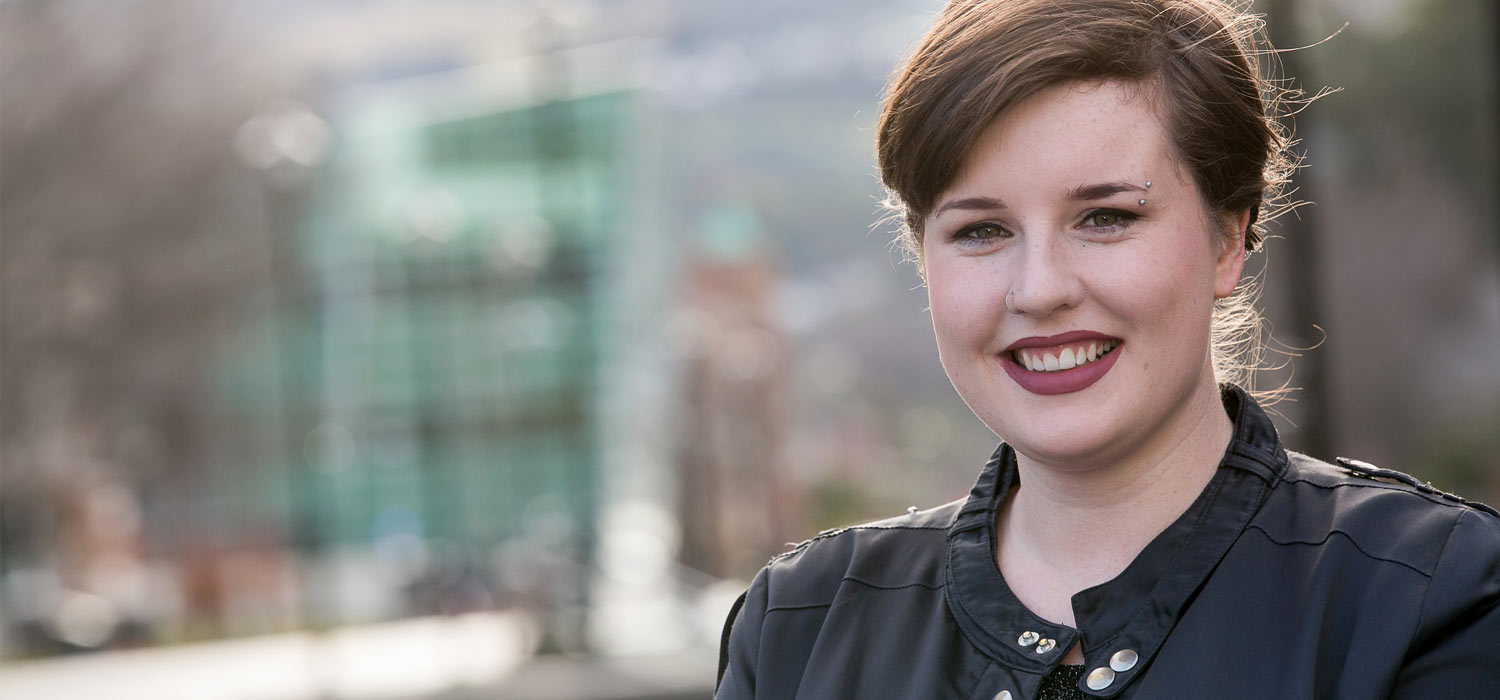
Rhodes to travel
What does it take to win one of the world's most prestigious scholarships? For one Otago student it was a combination of commitment, compassion and being very, very busy.
Being “ridiculously busy” has paid off for graduate Jean Balchin, who will soon move from Otago to Oxford on a Rhodes Scholarship.
Balchin, who has just completed a Bachelor of Arts Honours in English Literature, is one of only three New Zealanders to be selected this round for the sought-after scholarship, which provides tuition at the University of Oxford in England, accommodation and a monthly stipend for a minimum of two years.
“I'm absolutely stoked about what an amazing opportunity this is,” says Balchin. “I'm really looking forward to studying at Oxford and being part of such an incredible international community. I feel very honoured to have been chosen and am very grateful to the English Department, the scholarship office and to Rhodes scholar Professor Merata Kawharu [Tu Tumu – School of Māori, Pacific and Indigenous Studies] for their support.”
The “beauty of the Rhodes” is that selection is not based purely on academic results, but also on values such as integrity and care for fellow human beings, she says.
“I think the reason I was given the scholarship – besides my academic success – is that I'm really passionate about making a change, especially in terms of suicide prevention, mental health awareness, student journalism and science communication."
"It's about all those extracurricular activities and your ability to show that you actually care about other people. And I do genuinely care about the volunteering that I do.”
Balchin became involved with teen and youth suicide prevention after her younger brother, John, died by suicide in 2014. His suicide, and her own struggle with depression and anxiety, are topics she doesn't shy away from.
“Keeping hush hush about these sorts of issues just perpetuates the stigma more. I am very honest in my writing and on my radio shows, and I also spoke at the University's SilverLine Wellbeing Festival last year: about my brother's story, my story, certain myths surrounding suicide and how we can dispel them and combat the stigma around mental health in general.”
As well as regularly volunteering with the Life Matters Suicide Prevention Trust, Balchin shaved her head in 2016 to raise money for the trust and last year she organised an art exhibition at the Dunedin Community Gallery. The “Hope” exhibition featured around 130 artworks, including one of her own paintings, and raised approximately $4,000 for Life Matters.
On top of this, Balchin hosts two radio shows and writes for a variety of magazines and newspapers, including a regular column in the Otago Daily Times. She is also the editor of Sciblogs – a Science Media Centre of New Zealand website featuring science bloggers – and for the student volunteering organisation UniCrew blog.
“I'm ridiculously busy, but I love doing my radio work and my writing and I love provoking people through my journalism. I actually relish it.”
Balchin's interest in science communication was sparked after doing a Humanities internship at the Science Media Centre last year. Her major project was a series of articles titled A History of New Zealand Science in 25 Objects, based on the idea of The History of the World in 100 Objects by the British Museum.
“We punch above our weight in the international scale of things. I wanted to represent New Zealand in an accurate and diverse light, so as well as Rutherford and the atom, Hamilton jet boats and the bungy jump, I included work by women scientists like Beatrice Tinsley, who was an astrophysicist in the '50s and '60s, and I also looked at tā moko uhi [chisels] and pā fortifications. It's fascinating.”
During her time at Oxford, Balchin plans to complete a master's degree and a DPhil, which will look at social Darwinism in New Zealand colonial literature.
“I'm interested in how Darwin's theory of evolution was perverted and used to justify racism and colonial expansion. It's looking at science communication through a historical and literary lens. It's a mix of all my interests rolled up into one.”
Looking to the future, Balchin sees no reason to choose between these areas of interest.
“I don't see my careers as an academic and as a communicator as being mutually exclusive. I'd like to continue in science communication and I'd like to come back to Otago and be a lecturer. I love the English Department here: their ability to believe in you and their insistence that you can do what you want to do. The English Department, and Humanities in general, are so integral to our University.
“I also love New Zealand and I want to see it change for the better. I'm going to try to influence things with my journalism, my activism and my public speaking. And if I can't make enough of a change, I'll go into politics.”
